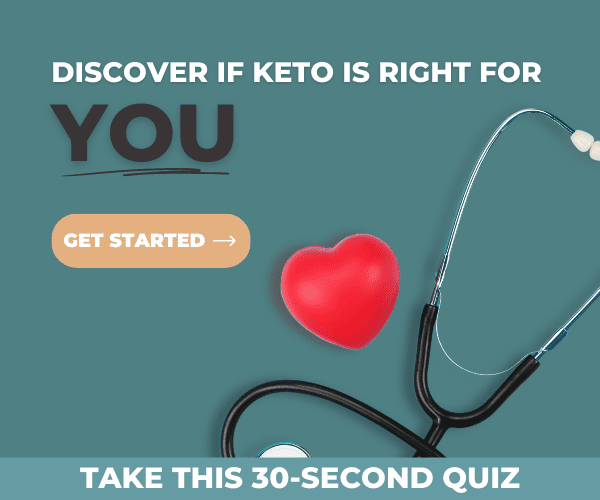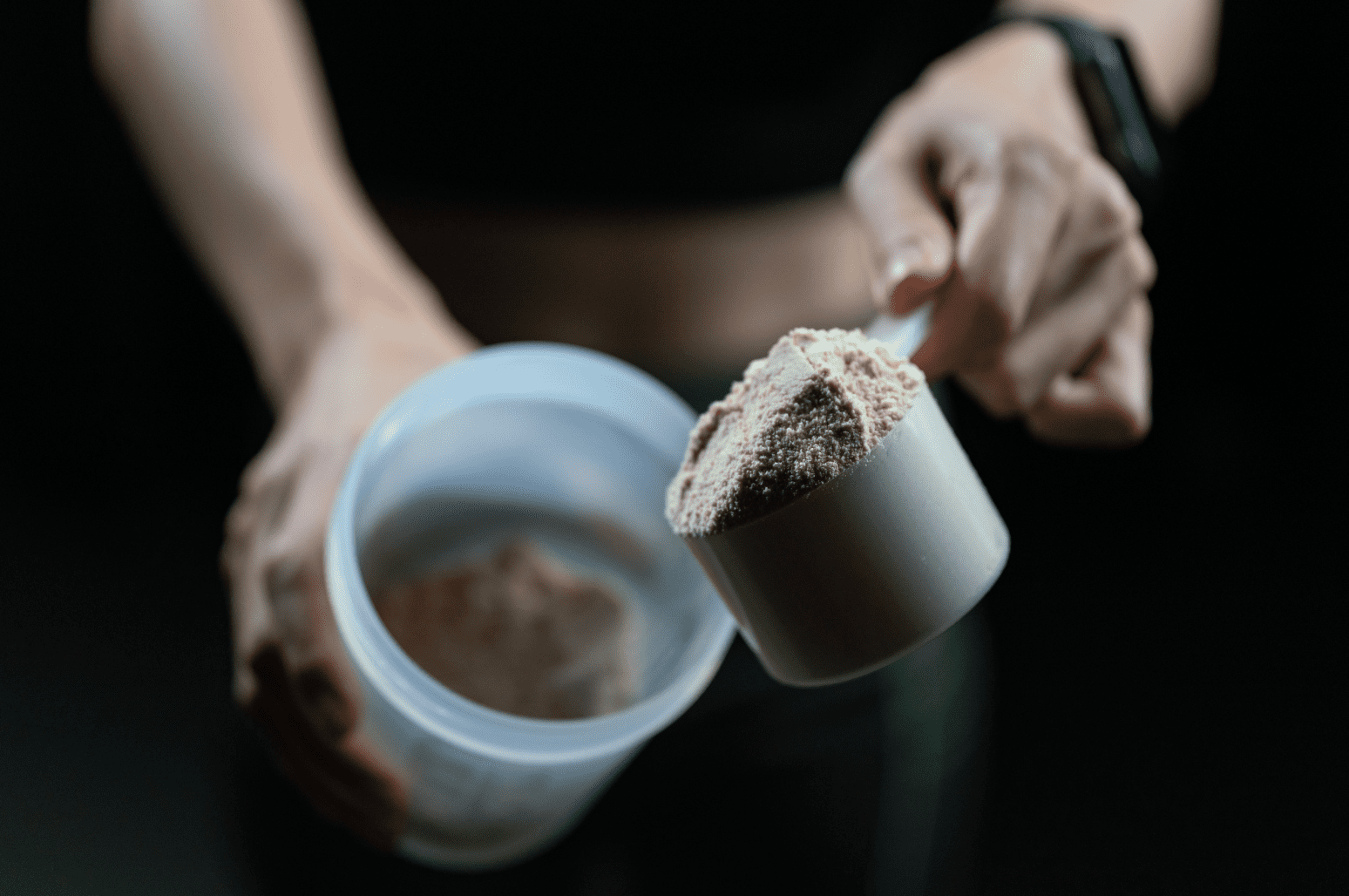
The lemon is juicy, citrusy, summery, and almost as bright as the sun! All hail the glorious yellow lemon (citrus limon) — one of the world’s most popular citrus fruits. This sour-tasting fruit grows on lemon trees and is usually used to garnish or flavor drinks and recipes, rather than the consumed whole. When life gives you lemons, you make keto lemonade, of course! So, let’s discuss the health benefits of lemons on a ketogenic diet.
Lemon Nutrition Information
Lemons don’t provide much fat and protein, but they do give you fiber and vitamin C, and various beneficial plant compounds and minerals. They mainly consist of water (88-89%) and a small number of carbs (10%).
One medium lemon only provides around 20 calories. ½ cup (100 grams) of raw, peeled lemon provides 1.1 grams of protein, 9.3 grams of carbs, 2.5 grams of sugar, and 2.8 grams of fiber. This means lemons are a low-carb fruit and a great choice for your keto diet! The carbs in lemons are mostly fibers and simple sugars like glucose and fructose.
The primary fiber in lemons is called pectin, which can lower blood sugar levels by slowing down the digestion of starch and sugar [1] [2] [3] Most health experts agree dietary fiber is an important part of a healthy diet and associated with a plethora of health benefits [4]
Plant Compounds, Vitamins, and Minerals!
Lemons aren’t just a pretty yellow color; they’re packed with vitamins, minerals, and plant compounds, such as:
- Vitamin C
- Potassium
- Vitamin B6
Vitamin C is key for skin health, and immune function. Potassium can lower blood pressure levels and boost heart health.
Vitamin B6 is involved in converting food to energy [5] [6] [7].

The plant compounds in citrus fruits like lemons might also have beneficial effects on cardiovascular disease, cancer, and inflammation. [8] [9] [10].
Lemons contain plant compounds like diosmin — an antioxidant used in some medications that affect the circulatory system improves muscle tone and reduces chronic inflammation of the blood vessels [11].
Should You Eat Lemons on Keto?
You could try drinking lemon water and exploring some lemony recipes here at Ketogenic.com! Choose a keto-approved lemonade, and make sure you confirm there’s no sneaky added sugar!
There’s no reason you shouldn’t enjoy the benefits of lemons unless you have an allergy. For some people with dermatitis, lemons can cause skin irritation and contact allergy. A small percentage of people have a lemon allergy, but lemons are typically well-tolerated and provide health benefits! [12] [13]
For example, intake of fruits high in vitamin C is linked to a reduced risk of heart disease [14] [15]. Some animal studies reveal the plant compounds diosmin and hesperidin might have positive effects on key risk factors for heart disease [16] [17] [18]. The citric acid in lemons might also reduce your risk of kidney stones [19] [20].
So, will you enjoy the benefits of lemons as part of your healthy ketogenic diet?
References
United States Department of Agriculture. Lemon, Raw. FoodData Central (usda.gov)
Liu, Y., Heying, E., & Tanumihardjo, S. A. (2012). History, global distribution, and nutritional importance of citrus fruits. Comprehensive Reviews in Food Science & Food Safety, 11(6), https://doi.org/10.1111/j.1541-4337.2012.00201.x
Slavin, J. (2013). Fiber and prebiotics: Mechanisms and health benefits. Nutrients, 5(4), 1417-1435. DOI: 10.3390/nu5041417
Macfarlane, S., Macfarlane, G. T., & Cummings, J. H. (2006). Review article: Prebiotics in the gastrointestinal tract. Aliment Pharmacol Ther, 24(5), 701-714. DOI: 10.1111/j.1365-2036.2006.03042.x
Wintergerst, E. S., Maggini, S., & Hornig, D. H. (2006). Immune-enhancing role of vitamin C and zinc and effect on clinical conditions. Ann Nutr Metab, 50(2), 85-94. DOI: 10.1159/000090495
Johnston, C. S., Barkyoumb, G. M., & Schumacher, S. S. (2014). Vitamin c supplementation slightly improves physical activity levels and reduces cold incidence in men with marginal vitamin C status: A randomized controlled trial. Nutrients, 6(7), 2572-2583. DOI: 10.3390/nu6072572
D’Elia, L., Barba, G., Capuccio, F. P., & Strazzullo, P. (2011). Potassium intake, stroke, and cardiovascular disease: A meta-analysis of prospective studies. J Am Coll Cardiol, 57(10), 1210-1219. DOI: 10.1016/j.jacc.2010.09.070
Benavente-Garcia, O., & Castillo, J. (2008). Update on uses and properties of citrus flavonoids: New findings in anticancer, cardiovascular, and anti-inflammatory activity. J Agric Food Chem, 56(15), 6185-6205. DOI: 10.1021/jf8006568
Benavente-Garcia, O., Castillo, J., Alcaraz, M., Vicente, V., Del Rio, J. A., & Ortuno, A. (2007). Beneficial action of citrus flavonoids on multiple cancer-related biological pathways. Curr Cancer Drug Targets, 7(8), 795-809. DOI: 10.2174/156800907783220435
Manthey, J. A., Grohmann, K., & Guthrie, N. (2001). Biological properties of citrus flavonoids pertaining to cancer and inflammation. Curr Med Chem, 8(2), 135-153. DOI: 10.2174/0929867013373723
Del Rio, J. A., Fuster, M. D., Gomez, P., Porras, I., Garcia-Lidon, A., & Ortuno, A. (2004). Citrus limon: A source of flavonoids of pharmaceutical interest. Food Chemistry, 84(3), 457-461.
Lorio, R. A., Del Duca, S., Calamelli, E., Pula, C., Lodolini, M., Scamardella, F., Pession, A., & Ricci, G. (2013). Citrus allergy from pollen to clinical symptoms. PLoS One, 8(1), e53680. DOI: 10.1371/journal.pone.0053680
Cardullo, A. C., Ruszkowski, A. M., & DeLeo, V. A. (1989). Allergic contact dermatitis resulting from sensitivity to citrus peel, geraniol, and citral. J Am Acad Dermatol, DOI: 10.1016/s0190-9622(89)80043-x
Enstrom, J. E., Kanim, L. E., & Klein, M. A. (1992). Vitamin C intake and mortality among a sample of the United States population. Epidemiology, 3(3), 194-202. DOI: 10.1097/00001648-199205000-00003
Joshipura, K. J., Hu, F. B., Manson, J. E., Stampfer, M. J., Rimm, E. B., Speizer, F. E., Colditz, G., Acherio, A., Rosner, B., Spiegelman, D., & Willett, W. C. (2001). The effect of fruit and vegetable intake on risk for coronary heart disease. Ann Intern Med, 134(12), 1106-1114. DOI: 10.7326/0003-4819-134-12-200106190-00010
Srinivasan, S., & Pari, L. (2013). Antihyperlipidemic effect of diosmin: A citrus flavonoid on lipid metabolism in experimental diabetic rats. Journal of Functional Foods, 5(1), 484-492.
Kim, H. K., Jeong, T-S., Lee, M-K., Park, Y. B., & Choi, M-S. (2003). Lipid-lowering efficacy of hesperetin metabolites in high-cholesterol fed rats. Clin Chim Acta, DOI: 10.1016/s0009-8981(02)00344-3
Choi, G-S., Lee, S., Jeong, T-S., Lee, M-K., Jung, U. J., Kim, H-J., Park, Y. B., Bok, S-H., & Choi, M-S. (2004). Evaluation of hesperetin 7-O-lauryl ether as lipid-lowering agent in high-cholesterol-fed rats. Bioorg Med Chem, 12(13), 3599-3605. DOI: 10.1016/j.bmc.2004.04.020
Penniston, K. L., Steele, T. H., & Nakada, S. Y. (2007). Lemonade therapy increases urinary citrate and urine volumes in patients with recurrent calcium oxalate stone formation. Urology, 70(5), 856-860. DOI: 10.1016/j.urology.2007.06.1115
Penniston, K. L., Nakada, S. Y., Holmes, R. P., & Assimos, D. G. (2008). Quantitative assessment of citric acid in lemon juice, lime juice, and commercially-available fruit juice products. J Endourol, 22(3), 567-570. DOI: 10.1089/end.2007.0304









